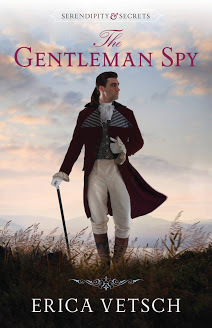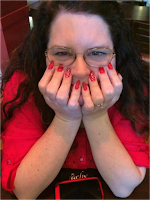Finding Your Voice

There are several aspects of writing for publication that can be unbelievably frustrating. The waiting. The search for the right agent. The submission process.
And then there's the nebulous feedback you get on your writing.
Show don't tell. Resist the urge to explain. Your pacing is off.
One of the most frustrating bits of feedback I received was "You need to find your voice."
My voice? How do I find my voice when I thought I was using my voice to write all along?
What is 'voice' anyway? VOICE is your unique way of writing. It's your vocabulary, your sentence length, your style choices, your way of creating that are solely yours. Voice is how you tell the difference between Mary Connealy and Ruth Logan Herne's blog posts. It's how you tell the difference between Arthur Conan Doyle and Charlotte Bronte, between A. A. Milne and Stephen King.
You might be thinking, "That's ridiculous. No one would mistake the author of Winnie-the-Pooh and the author Cujo for one another."
You're right, because those authors developed their unique voices to be different from any other author out there.
Did you know that when most people begin to write fiction, especially if they begin writing in earnest as an adult, they often write in a style of the authors who have influenced them. It's a sort of homage to those writers.
For me, the first time I submitted a proposal to an editor, I received the feedback that my writing sounded like Violet Winspear.
Violet Winspear was a British novelist who wrote for Mills & Boon during the 60s, 70s, and 80s.
That editor wasn't far off, since one of my favorite authors of all time is Essie Summers, a New Zealand novelist who wrote for Mills & Boon during the 60s, 70s, 80s, and into the 90s.
When I re-read my first efforts as a novelist, I see the similarities. I was writing in the style of a beloved author, not in my own writing voice.
So how does a writer move from copying an author who influenced them and begin writing their own voice?
1. Read Widely. Rather than focus on just your favorite authors, read widely. Don't bathe your mind in one style or genre, instead sample lots of styles and authors. It's fairly easy to find yourself copying one writer's style, but it's impossible to copy EVERY writer's style.
2. Write. Write Write Write Write Write. I cannot stress this enough. You learn and discover your own writing voice by using it! Write narrative, write dialogue, write description, write action, write, write, write! As you write, you will flex those voice muscles, letting go of old habits and bents and establishing your particular way of writing.
3. Edit your writing. Re-read your work. As you read, you'll think "Oh, I should put a line of dialogue about __________ in here." and in a couple of lines, you'll see that you did. Or "I need to drop a hint here as to what the heroine is thinking." and less than half a page later, you read that you have already done that. You will know your own voice as you read.
4. Set a test. Send a critique partner half a dozen writing samples they've never seen before (only one of them yours) and see if they can pick out the one that you wrote. If they can, you have found your voice!
Voice is both complicated and simple. But truthfully, you WILL discover your unique voice through writing, reading widely, and editing your work. You won't have found it, and then one day, you will.
QUESTION OF THE DAY: Have you found your writing voice?
BONUS QUESTION OF THE DAY: What's the most FRUSTRATING piece of writing advice you've gotten?
The Gentleman Spy has released!

He only wanted a duchess for a day--but she’s determined to make it a marriage for life
When his father and older brother suddenly pass away, the new Duke of Haverly is saddled with a title he never expected to bear. To thwart the plans of his scheming family, the duke impulsively marries a wallflower. After all, she’s meek and mild; it should be easy to sequester her in the country and get on with his life--as a secret agent for the Crown.
But his bride has other ideas. She’s determined to take her place not only as his duchess but as his wife. As a duchess, she can use her position to help the lowest of society--the women forced into prostitution because they have no skills or hope. Her endeavors are not met favorably in society, nor by her husband who wishes she’d remain in the background as he ordered.
Can the duke succeed in relegating her to the sidelines of his life? When his secrets are threatened with exposure, will his new wife be an asset or a liability?
You can get your copy of The Gentleman Spy HERE!

Best-selling, award-winning author Erica Vetsch loves Jesus, history, romance, and sports. She’s a transplanted Kansan now living in Minnesota, and she is married to her total opposite and soul mate! When she’s not writing fiction, she’s planning her next trip to a history museum and cheering on her Kansas Jayhawks and New Zealand All Blacks.
You can connect with her at her website, www.ericavetsch.com where you can read about her books and sign up for her newsletter, and you can find her at online https://www.facebook.com/EricaVetschAuthor/ where she spends way too much time!
Published on August 23, 2020 22:00
No comments have been added yet.



